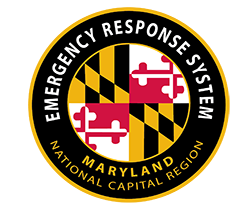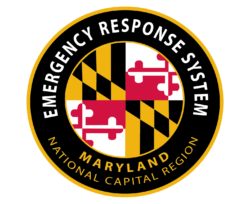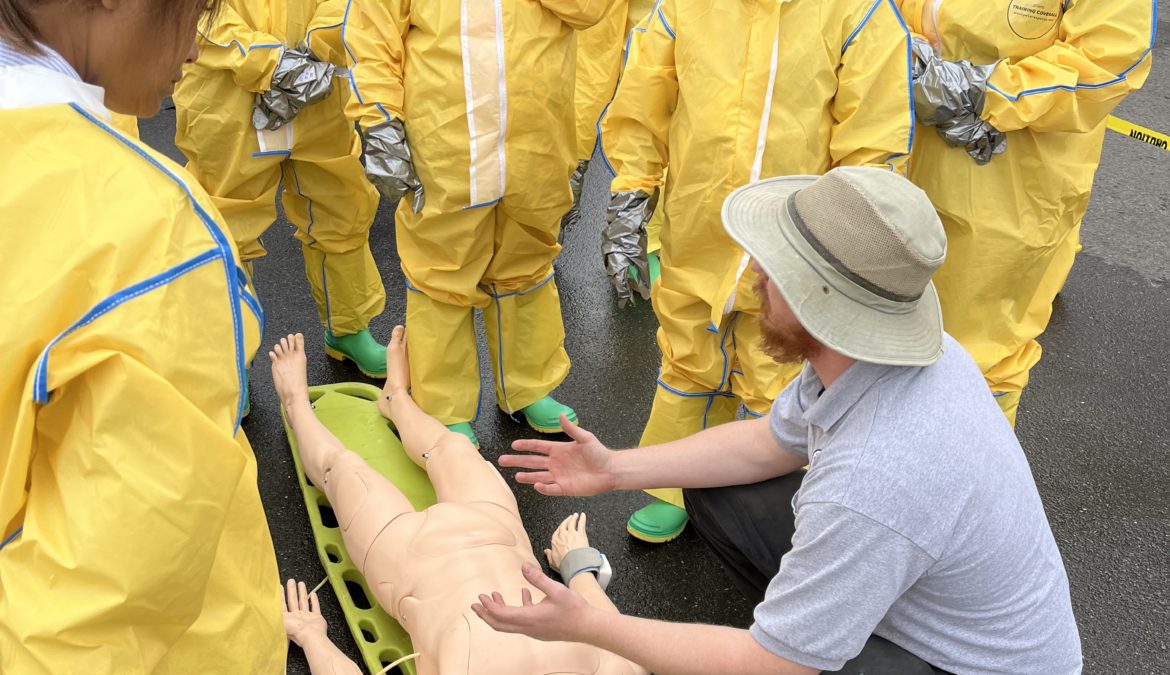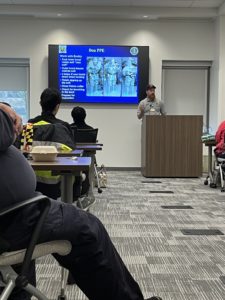 To prepare for a potential response to individuals exposed to unknown hazardous substances, seven hospitals within the Maryland-National Capital Region participated in a series of First Receiver Operations Training (FROT) course offerings throughout the Spring of 2022. These two-day trainings educated first receivers on the knowledge, skills, and abilities to recognize a hazardous material exposure, triage patients, initiate field treatment, conduct decontamination, and transition patients to definitive care.
To prepare for a potential response to individuals exposed to unknown hazardous substances, seven hospitals within the Maryland-National Capital Region participated in a series of First Receiver Operations Training (FROT) course offerings throughout the Spring of 2022. These two-day trainings educated first receivers on the knowledge, skills, and abilities to recognize a hazardous material exposure, triage patients, initiate field treatment, conduct decontamination, and transition patients to definitive care.
On the first day of the FROT training, students engaged in a classroom discussion that focused on identifying various hazardous materials, protecting against potential exposure, and the detailed process of setting up and operating a field decontamination site. The DECON, LLC instructor introduced various types of contaminants used in real-world events, the symptoms associated with different hazard agents, the proper protocols for donning and doffing personal protective equipment (PPE), and discussed the operation of mass decontamination sites.
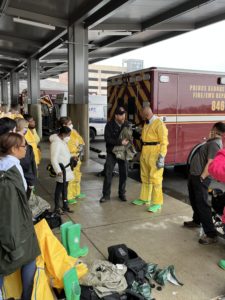 During the second day of training, students received hands-on instruction and demonstrated their ability to properly configure a field decontamination site, including hot, warm, and cold zones, while wearing full PPE. Each of these decontamination sites includes an inflatable shelter with running water to augment permanent infrastructure inside healthcare facilities. Students practiced implementing triage methodologies, deploying equipment, and facilitating both ambulatory and non-ambulatory patient decontamination practices.
During the second day of training, students received hands-on instruction and demonstrated their ability to properly configure a field decontamination site, including hot, warm, and cold zones, while wearing full PPE. Each of these decontamination sites includes an inflatable shelter with running water to augment permanent infrastructure inside healthcare facilities. Students practiced implementing triage methodologies, deploying equipment, and facilitating both ambulatory and non-ambulatory patient decontamination practices.
To culminate the training, students completed a capstone exercise on a hazardous waste operations and emergency response (HAZWOPER) scenario. The scenario necessitated that each team demonstrate their ability to sufficiently deploy and staff their field decontamination site within a specified time limit. During the scenario, students demonstrated mastery of their ability to appropriately don their PPE, deploy the mobile decontamination shelter, connect to running water, triage, and treat a simulated patient.
FROT training remains an imperative step to enhance the safety of first receivers while improving their abilities to manage a large-scale decontamination response. This training continues to provide an unparalleled opportunity to conduct hands-on training under real-world conditions that may be called upon to save lives within Prince George’s and Montgomery Counties.
